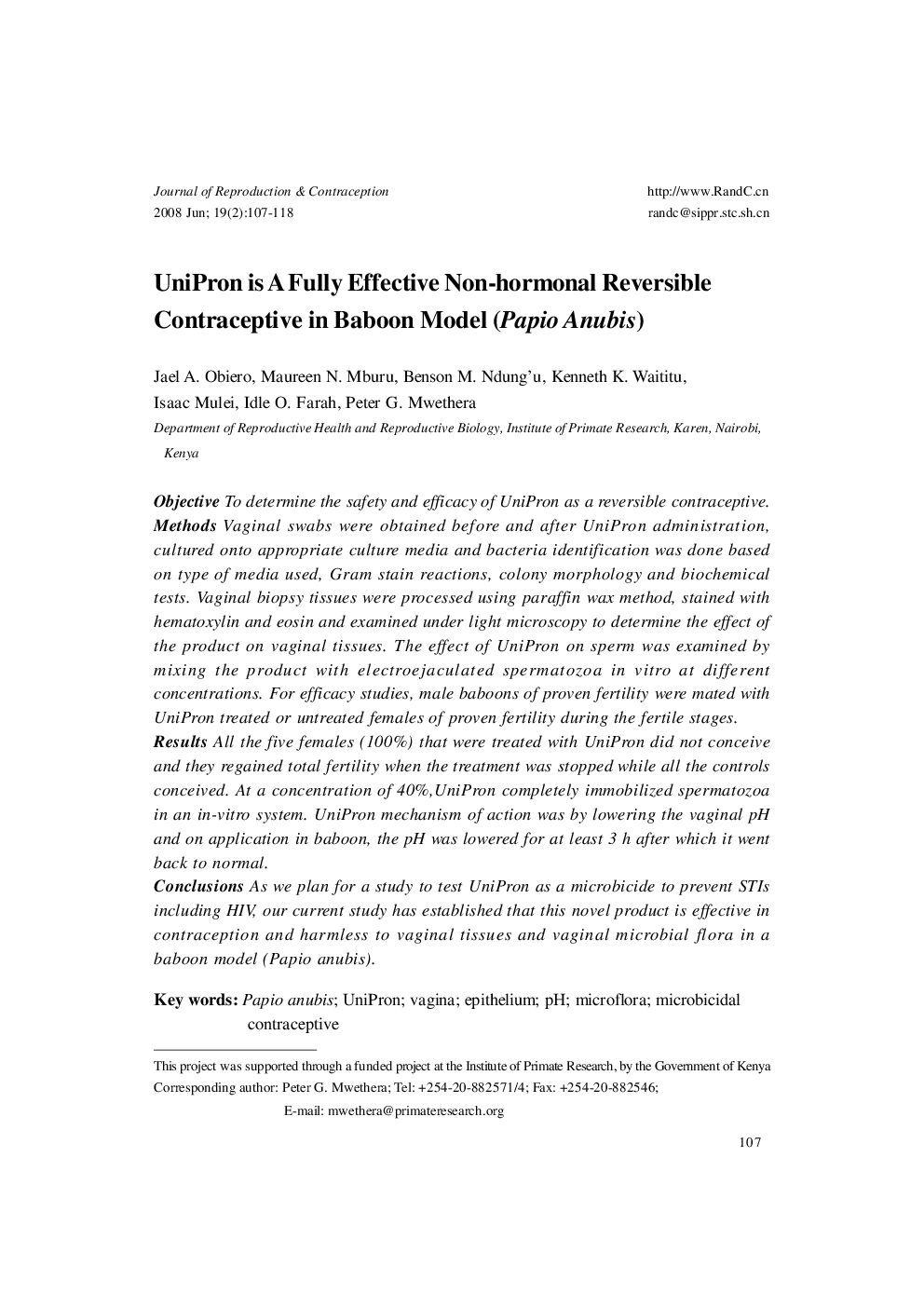| Article ID | Journal | Published Year | Pages | File Type |
|---|---|---|---|---|
| 3964094 | Journal of Reproduction and Contraception | 2008 | 12 Pages |
ObjectiveTo determine the safety and efficacy of UniPron as a reversible contraceptive.MethodsVaginal swabs were obtained before and after UniPron administration, cultured onto appropriate culture media and bacteria identification was done based on type of media used, Gram stain reactions, colony morphology and biochemical tests. Vaginal biopsy tissues were processed using paraffin wax method, stained with hematoxylin and eosin and examined under light microscopy to determine the effect of the product on vaginal tissues. The effect of UniPron on sperm was examined by mixing the product with electroejaculated spermatozoa in vitro at different concentrations. For efficacy studies, male baboons of proven fertility were mated with UniPron treated or untreated females of proven fertility during the fertile stages.ResultsAll the five females (100%) that were treated with UniPron did not conceive and they regained total fertility when the treatment was stopped while all the controls conceived. At a concentration of 40%, UniPron completely immobilized spermatozoa in an in-vitro system. UniPron mechanism of action was by lowering the vaginal pH and on application in baboon, the pH was lowered for at least 3 h after which it went back to normal.ConclusionAs we plan for a study to test UniPron as a microbicide to prevent STIs including HIV, our current study has established that this novel product is effective in contraception and harmless to vaginal tissues and vaginal microbial flora in a baboon model (Papio anubis).
